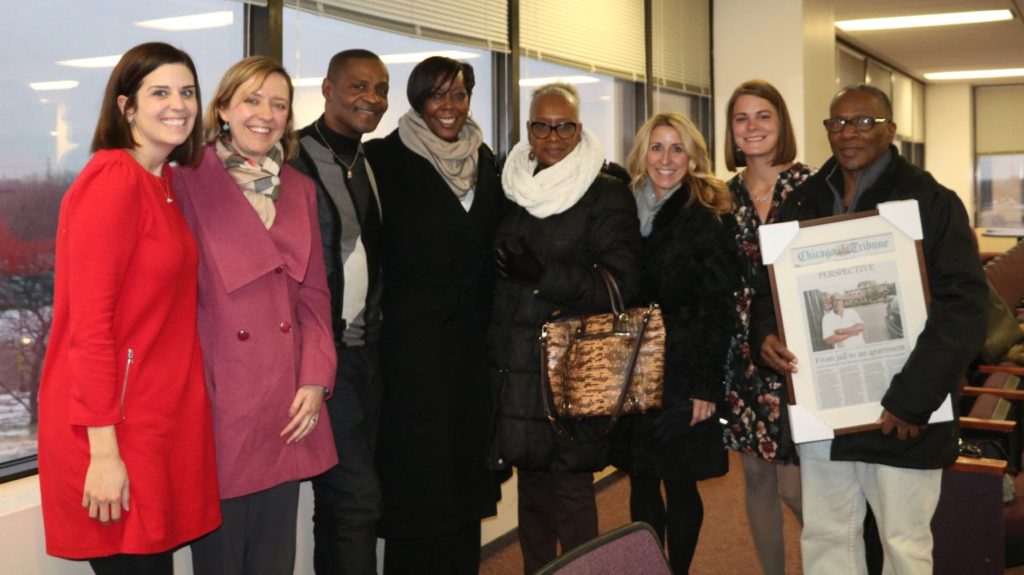Reentry Housing and the Cook County Drug Court
As BPI looks ahead to our next 50 years, we’d like to share a few highlights from our 50th Anniversary Report over the next few weeks. First up, a look at our efforts to reform Illinois’ justice system by addressing a key issue facing justice-involved individuals—access to safe, stable and affordable housing. A growing body of evidence suggests this is a primary factor in reducing recidivism and reincarceration.
Exploration of reentry housing issues led BPI to launch a significant new project—a pilot program involving a partnership between the Cook County Rehabilitation Alternative to Probation (RAP) Drug Treatment Court and the Housing Authority of Cook County (HACC). Problem solving courts, like the RAP Drug Court, help divert people from prison, but graduates often lack access to safe and stable housing which can jeopardize their recovery and lead them back into the justice system. Judge Charles Burns notes, “This partnership will ensure those in recovery have access to stable and affordable housing—a crucial piece to transition from a recurring criminal life to that of a successful and admired member of our community.”
In the BPI pilot program now underway, 25 individuals graduating from Drug Court receive a Cook County housing voucher. HACC counselors then help each individual find an apartment and obtain landlord approval. After moving into their apartment, each participant also receives up to a year of individual case management counseling services provided by Treatment Alternatives for Safe Communities (TASC)—helping them to settle successfully into their new home and community.
HACC Executive Director Rich Monocchio observes, “This innovative pilot involving the Cook County Housing Authority, TASC, the Circuit Court, and BPI is going to be a trailblazer in demonstrating how the housing and justice systems can work together to ensure the formerly incarcerated can succeed.”

For some, this work is not only important, but also personal. “To have a place to go to and call home is not only the desire of every adult human being, but the desire of those who are formerly incarcerated,” says Nasir Blackwell, an organizer with the Inner-City Muslim Action Network (IMAN) and himself formerly incarcerated. “How can an individual create an existence without a place to call home? Overcoming barriers of access to housing is essential to overcoming the stigma of having been formerly incarcerated, and more importantly, is essential to re-acclimating to society.”
The immediate goal of our pilot is to provide a path for justice-involved individuals to gain housing, employment, and financial independence, and after three years to be able to personally assume their lease and return the housing voucher to the Drug Court to serve new graduates.
Long-term, the goal of this pilot is to demonstrate that partnerships such as ours can improve lives and reduce recidivism, and should be expanded to additional justice and housing systems across the state.
Back To Blog